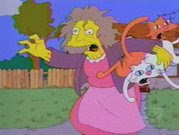I am reading Hot, Flat, and Crowded by Thomas L. Friedman. This week I read Part 1, which is his introduction to the problem of hot, flat, and crowded as he puts it. The book has so many compelling arguments to back these up, it would be best if you just read it, but I will do my best. In summary, the world is being drastically affected by global warming, in that, the earth is warming and humans are the main cause for this increase (Friedman 31-36). He points back at the Reagan administration that, instead of continuing the trend of increasing the mpg gallon for cars and helping to further ease our dependency on foreign oil, decreased it by a whole 1.5 mpg (Friedman 14). He cut the funding for many of President Carter’s alternative energy programs and even took the solar panels off of the white house (Friedman 14-15). Some may argue that a small increase in temperature will not affect us, but Friedman thinks differently,
From our ice core samples, Holdren explained, we know that the difference between an ice age and an interglacial period like we are in now - that is, the difference between the earth being and ice ball and being very comfortable. So a small difference in that global temperature can lead to very big changes, which is why this .8 degree Celsius is telling us, as Al Gore likes to say, the planet has “a fever” (Friedman 37).
Many people argue that the environment should not be a big priority, but does it matter how well the economy is doing if the world is a degree from being a popsicle? I think that it is interesting how he points to the Reagan administration: mistakes we made in the past may come back to haunt us now. What if he had continued to increase the mpg necessary in cars or continued to fund the alternative energy programs? Unfortunately, that is history now and our generation is going to be defined by how we pull together and try and fix the growing problem of global warming.
Secondly and thirdly, the earth is flat and crowded. He points to three causes of the flattening of the earth,
The first was the invention of the personal computer, which enabled individuals-individuals- to become authors of their own content in digital form… Another big flattener was the emergence of the Internet… a set of tools that enabled individuals to send their digital content anywhere in the world…The third flattener was a quiet revolution in software… thus enabling work to flow farther and faster through internal company networks, the Internet, and the World Wide Web (Friedman 29-30).
Basically, my interpretation of flat, is that it is becoming increasingly easier to reach anyone around the world. Take this assignment for example; once I post it, anyone around the world can see it at a few clicks of a button. You can decide whether that is good or not. Crowded is simple, the world is filling with people. According to the United Nations Population Division, the population will be over 9 billion by 2050 (Friedman 28). Some of these places are not ready to support the millions of humans that are going to live there. There will be nineteen million people just in Mumbai, a country that also has a lot of pollution, deforestation, over fishing and water shortages (Friedman 28). Can the Earth support another 2 million people? I like how the author brings up the point about Mumbai; some countries don’t have enough, or are losing its natural resources. I’m sorry this is so long, but these are the main points of his book and I think that it is important to understanding the rest of the book. I realize that hot is two times larger than the other two, but the section about hot in the book also has two times the info and I just feel stronger about the global warming.
Friedman, Thomas L. Hot, Flat, and Crowded. New York: Farrar, Straus and Giroux, 2008.
Subscribe to:
Post Comments (Atom)

2 comments:
I like how you made the point about how a small temperature increase makes a big difference and that the economy will not matter when we are dead. When you said the world can't handle another 2 million, did you mean billion? Because if you did, that also is true. It sounds like this book could make a big impact on a lot of people if it spread.
Friedman definitely put a lot of thought into this book. The amount of information he uses simply in this first post is unbelievable. I havn't put much thought into past presidential organisations, Reagan, as possible causes of the issues we face today. This book seems to bring many issues to light and I plan on continuing to read your posts to be "enlightened" further.
Post a Comment